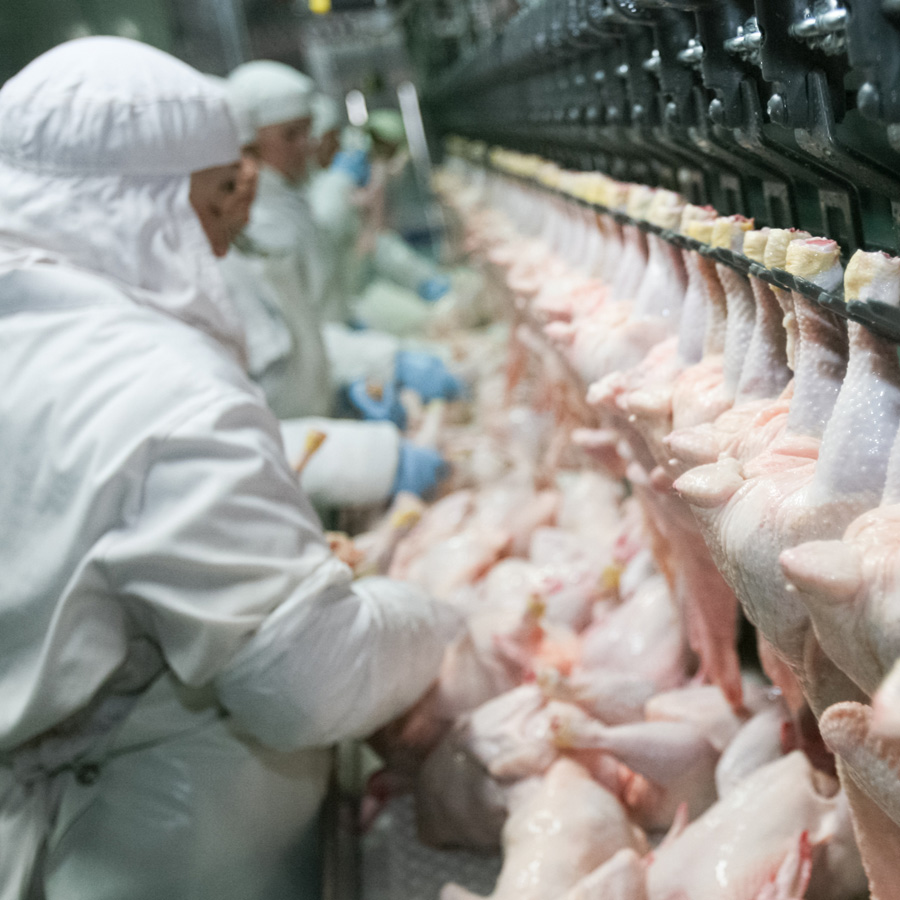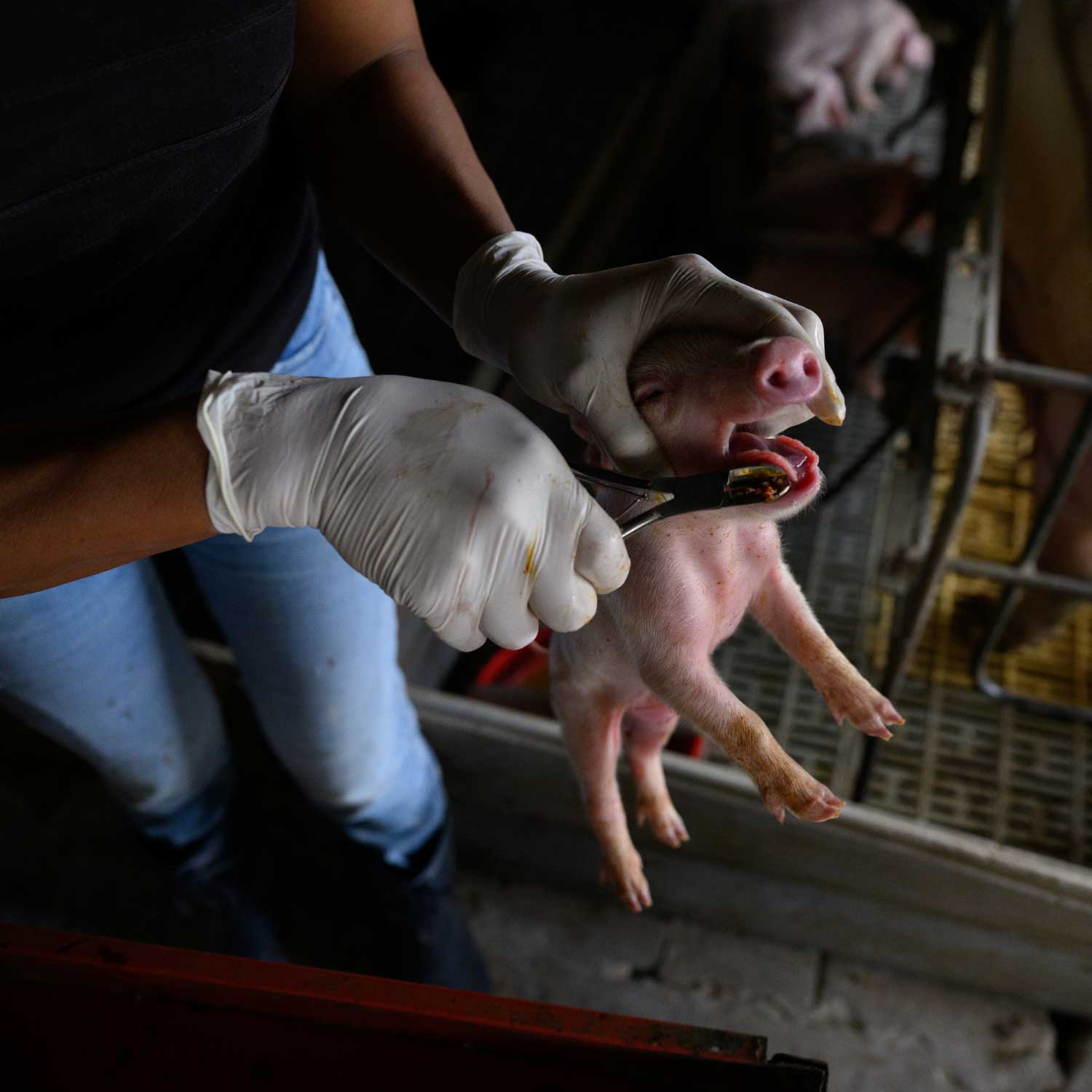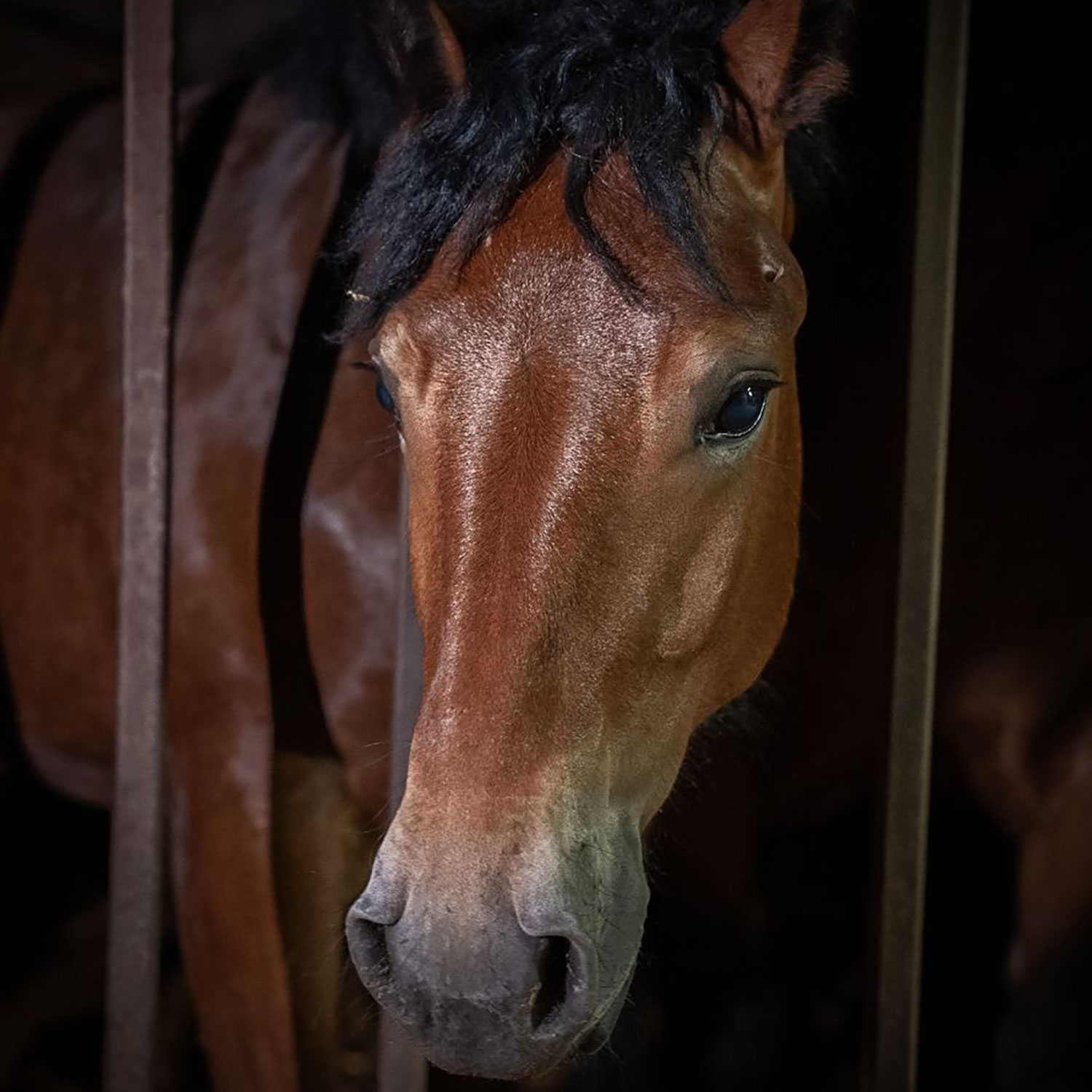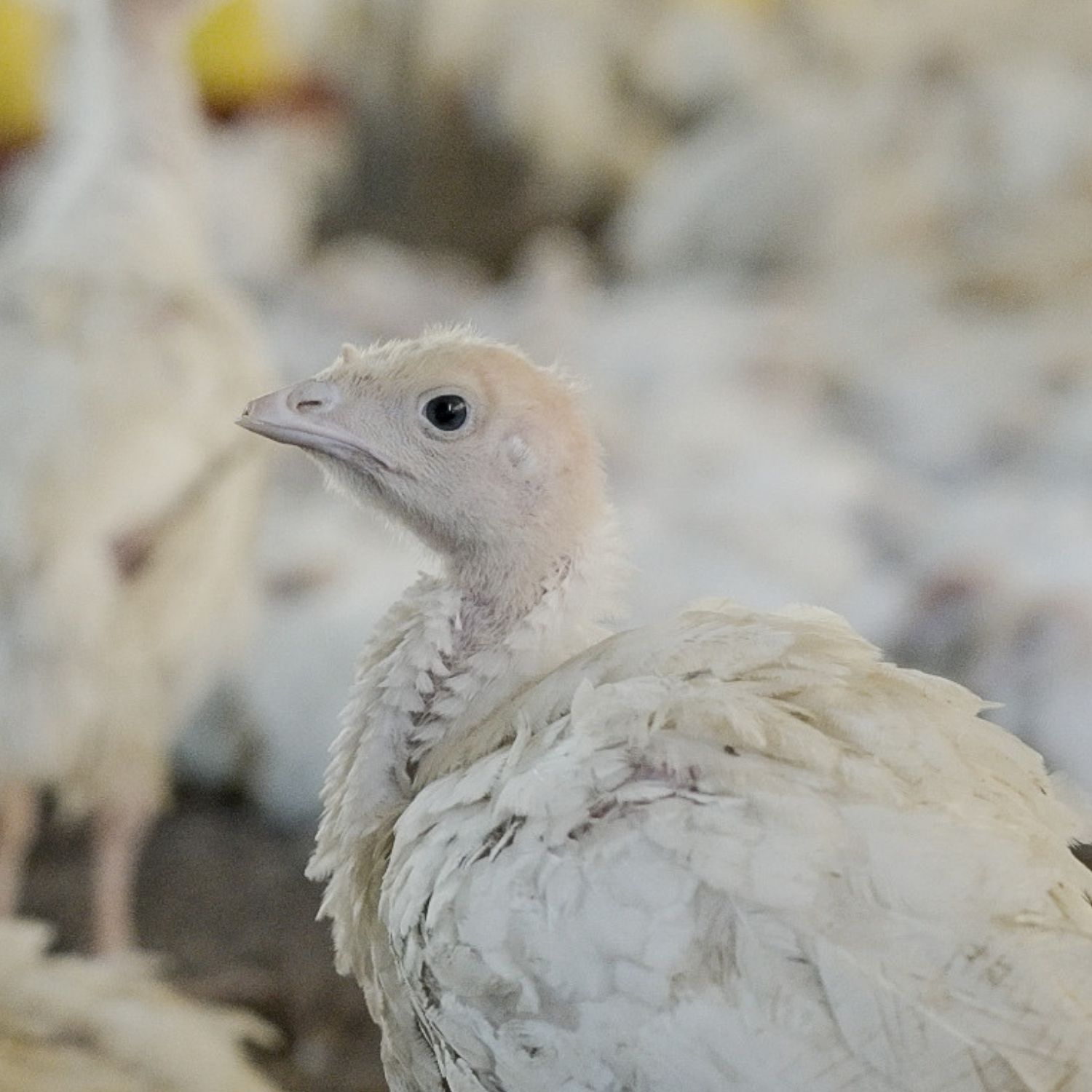Coronavirus Severely Disrupts Meat Industry


Be it from the cruel and overcrowded farms leading to extreme hardship and disease for the animals destined for slaughter, or the hundreds of workers contracting COVID-19 after being forced to work in unsafe conditions, the perils of animal agriculture are on full display during this global health crisis.
SLAUGHTERHOUSE CLOSURES: Due to massive coronavirus infections within their workforces, more than a dozen slaughterhouses have been forced to shut down or operate at a severely reduced capacity. Given the inability of the facilities’ workers to practice social distancing—employees must work shoulder to shoulder in most scenarios—the virus has been burning through the workplace at an alarming rate. This is particularly concerning given the lack of safety precautions offered by these plants, which caused some workers to stay home in protest of the lack of protections. Shockingly, these workers may be out of luck for better working conditions, as infectious disease experts lament these companies’ focus on corporate profits over employee safety. According to experts, spacing workers out to accommodate social distancing guidelines of at least 6 feet apart (as put forth by the Centers for Disease Control and Prevention to slow the spread of the virus) would result in less productivity and would be less profitable.
INDUSTRY IMPACT: In the US, about 50 processing plants account for about 98% of cows slaughtered. For pigs, about 20 plants handle about 70% of the processing. When one or more of these high output facilities closes down, it’s akin to a major transportation hub shuttering. For those working to end the suffering of farmed animals, news of the closure of these slaughterhouses might seem like a cause for celebration. For example, because of the closures and reduced demand for animal products due to the temporary shutdown of restaurants and hotels, the Department of Agriculture recently reported a 20% drop in the number of cows slaughtered compared to a similar time period in the previous year. Unfortunately, the combined closure of all these slaughter operations has had horrific consequences for the animals who are no longer in line to be killed for food.
INHUMANE OVERCROWDING: The cascading impact of these closures is devasting for animals. In South Dakota, where Smithfield Foods’ pig processing facility was forced to close because of a significant cluster of positive COVID-19 cases, the state’s governor just granted hog producers permission to overstock their concentrated animal feeding operations (CAFOs) since they can’t send their “finished” pigs off to be killed. As we’ve shown in our investigations, these facilities are extremely cramped as it is, so granting companies like Smithfield exemptions to overcrowd them even further increases the suffering of farmed animals.
DEPOPULATION AND REDUCED DEMAND: Delaware chicken producer, Allen Harim Foods, recently announced that they would be forced to kill over 2 million chickens in its barns due to staffing shortages caused by coronavirus illnesses in its workforce. It is unclear how these chickens will be “depopulated”—the industry term for on-farm killing animals without sending them to market—but typically producers choose from a variety of inhumane methods, such as suffocating the animals with carbon dioxide or foam or, even worse, through a process called “ventilation shutdown” in which the barns are simply closed up and the animals inside die of overheating or lack of oxygen. If that weren’t bad enough, in China, chickens were buried alive under similar circumstances.
WASTE AND GREED: In another example of the exploitation of farmed animals, a Wisconsin farmer was forced to discard 56K pounds of milk as demand plummeted due to COVID-19—an especially heartbreaking thought knowing, as we’ve reported, how torturous the process for extracting dairy is. Given the loss in revenue, bailouts are aplenty right now for animal-agriculture businesses impacted by economic hardships brought on by COVID-19. To that point, the governor of Montana just issued an executive order essentially allowing dairy farmers to be paid for milk that no one is buying in order to prevent these producers from going out of business, utilizing taxpayer money to prop up an abusive and failing industry.
WHAT HAPPENS NOW: It remains to be seen what the long-term impact will be on the meat industry, but one thing is certain—the cruelty and flagrant disregard of protections for these long-suffering farmed animals will continue as long as the demand for animal products remains. Our work is vital to exposing these cruelties, and along with your advocacy and action are all key components for future change. Do your part by ditching animal products and share our resources and investigations with your friends and family so they too can be informed.
LEARN MORE ABOUT OUR CAMPAIGN TO BAN WET MARKETS




